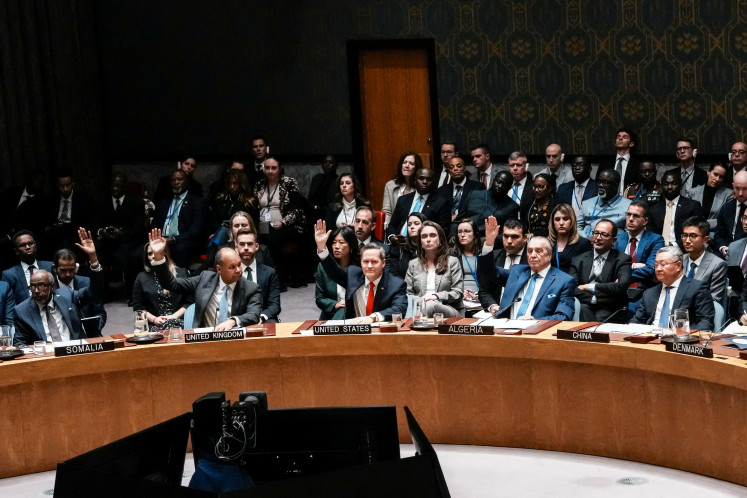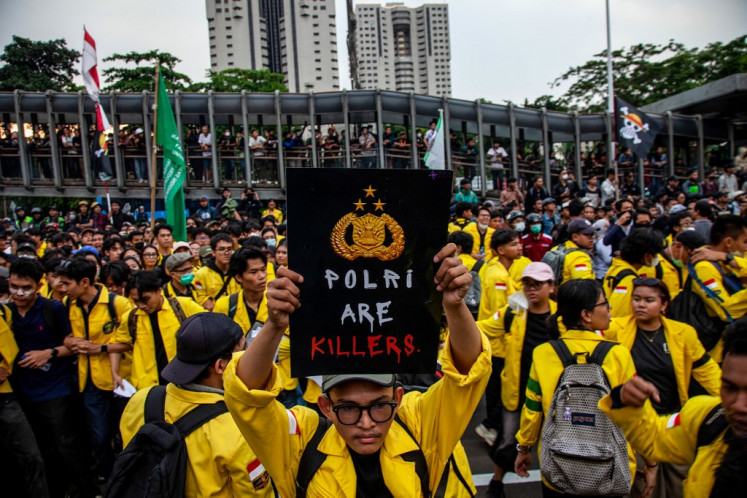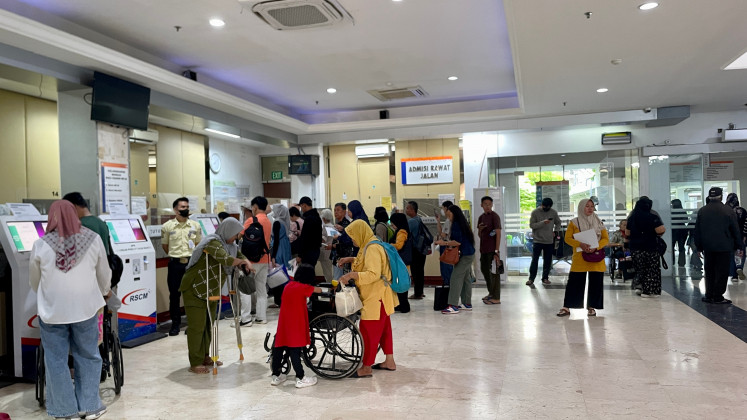Popular Reads
Top Results
Can't find what you're looking for?
View all search resultsPopular Reads
Top Results
Can't find what you're looking for?
View all search resultsMixed reaction to reopening of places of worship
The government’s plan to gradually reopen places of worship has drawn mixed responses from religious groups and health experts, many of whom insist that any possible easing of restrictions anywhere should be contingent on low risk of transmission
Change text size
Gift Premium Articles
to Anyone
T
he government’s plan to gradually reopen places of worship has drawn mixed responses from religious groups and health experts, many of whom insist that any possible easing of restrictions anywhere should be contingent on low risk of transmission.
For Muslim-majority Indonesia, where faith plays a large role in society, the pandemic has shuttered various mosques, temples and churches and prevented people from holding mass prayers.
However, the debate has managed to open a can of worms that pits public health against the right to practice religious beliefs.
Robikin Emhas, chairman of the country’s largest grassroots Muslim organization, Nahdlatul Ulama, said the current circumstances called for a thorough assessment of the options and should take various factors into account, including the rate of infection and the preparedness of the national healthcare system.
“As an exit strategy for the current large-scale social restrictions, a ‘new normal’ should be studied and prepared thoroughly so it may foster a productive livelihood for a society that is safe from COVID-19,” said Robikin, a vice presidential adviser.
Abdul Mu’ti, secretary-general of the nation’s second-largest Muslim group, Muhammadiyah, voiced a similar opinion, saying that reopening places of worship should not be done with haste, calling instead for the government to focus on prevention.
“There should be a guarantee from experts and authorities that can be held accountable. Only if these terms are fulfilled can we think about reopening, and even then only with strict [health] protocols,” Abdul told The Jakarta Post.
Rev. Japarline Marbun, head of the Bethel Church of Indonesia’s (GBI) synod, also said it would be better to err on the side of caution, considering how difficult it is to put in place the necessary health protocols in some churches.
“It is difficult, for instance, to expect congregations not to jostle as they enter the church, and there are many churches closed off with [poor] air circulation,” Japarlin said.
The nation’s top Muslim clerical body, the Indonesian Ulema Council (MUI), which comprises many organizations including NU and Muhammadiyah, said that places of worship should be allowed to reopen their doors to worshipers in areas deemed safe from COVID-19 transmission.
“Under conditions where the spread of COVID-19 is under control, Muslims are obliged to carry out Friday prayers and allowed to get involved in mass prayer activities [...] so long as they stay mindful of not getting infected,” said Asrorun Niam Sholeh, the MUI’s fatwa commission secretary, in a statement.
Last week, Religious Affairs Minister Fachrul Razi signed a circular detailing the necessary protocols for reopening places of worship in areas deemed to have little risk of viral transmission.
“The guidelines stipulate that any religious or social activity at a place of worship must take account of the real circumstances in the immediate vicinity and not just the status designated for that given area,” Fachrul said in a virtual press briefing on Saturday.
In order for a place of prayer to be reopened to the public, Fachrul said the local COVID-19 task force must recommend it in coordination with the relevant authorities. Recommendations can also be revoked if new infections are recorded or if there is a perceived lack of health protocol enforcement.
Three months after Indonesia reported its first COVID-19 infection, the government has come under fire for not acting swiftly enough to curb the spread of the disease among the nation’s devout.
A recent report from the Jakarta-based Institute for Policy Analysis of Conflict (IPAC) found that the lack of an early response to ban mass religious gatherings in the early days of COVID-19 transmission had contributed to the emergence of two infection clusters: the Gowa cluster linked with a tabligh (Muslim mass gathering) in South Sulawesi, and another from a religious seminar by GBI in Lembang, West Java.










